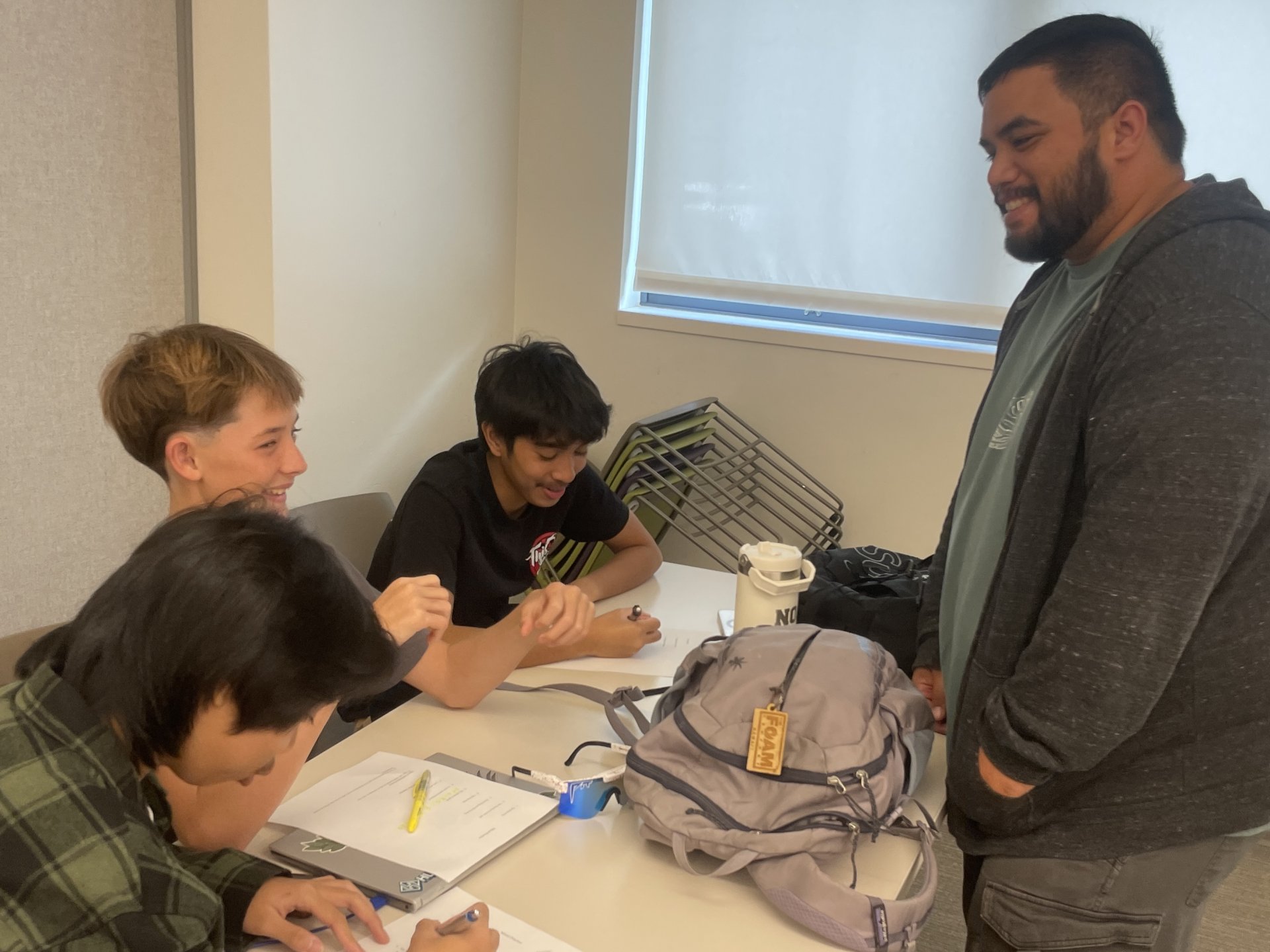| PBA Uses Soran Bushi as a New Year’s Challenge to Bring Its Community Closer Together
| | Dear readers of the What's New, | Our standards had slipped a little. Over the past few years preparing for our annual Taiko Festival, more and more “escape clauses” found their way into the all school experience of our Soran Bushi training environment. From the reasonable – performance taiko players didn’t need to rehearse because they wouldn’t perform it at the festival – to the less reasonable – rock band players didn’t need to rehearse because they needed to rehearse for the show – to the questionable – backstage crew didn’t need to rehearse because ... I don’t remember why, Soran Bushi had evolved from “all in” to “coalition of the willing” to “why didn’t I think of getting out of it that way?” I’m a big believer in shared experiences, and this year, I felt the PBA Sangha needed
|
| one more than ever. I’m not sure why I felt that way. It’s not as if anything is particularly amiss at our school. It’s more I felt we needed a shared struggle, an arduous experience we could endure together in pursuit of a communal, made work of beauty. So for our first day back from vacation, I declared that all students would join Soran Bushi training and that every teacher and administrator would join them as well.
| |
| Let me give you an idea of a typical Soran Bushi workout. Following Core 2, the freshmen clear Founders Hall and the student body gathers to break it down, a chain gang forming to wheel out the tables and chairs in stacks as others change into their workout clothes and stuff their shoes and socks in the cubbies. While we wait for Kena Heffernan, the school’s math teacher/AD/football coach/sumo sensei/Soran Bushi choreographer, to arrive, some stretch, some bounce around, some wrestle, some walk in with newly filled ice packs on their knees, foreheads, begging attention: this will be difficult. Heff gets there, pairs his phone with the Bluetooth, and gets us under way: jogging in
| | place, 30 seconds; jumping jacks, 30 seconds; high knees, 30 seconds, jog in place. He gets us in a narrow leg low squat and we pulse out 50. Switch the stance to sumo squat and 30 more. Recently, as our fitness levels have improved, he’s taken to having us in a low, flat footed frog squat, elbows inside of knees, feet flat, and we stand straight and squat all the way down, torsos between the knees again. First one's easy, no problem. When we get to 20 and our thighs start to burn seniors Ryan and Lycan, outside in the courtyard, yell “This is easy! Let’s do 50!” When we get to 50, it’s back to jogging in place (my legs barely move), fast feet (my feet can’t clear the ground), before we drop to the right, then left, for a few deep shinkyaku, pulsing it back and forth for 20 reps.
And that’s the warm-up! Eight training sessions later, our legs don’t get sore the way they used to. I still can’t nail some of the dance transitions, but it’s a dancing limitation, not a matter of fitness. And true, there are students whose advanced evasive maneuvers have kept them on the sidelines, or out of the room entirely, but the message to them is they are missing out on |
| this shared work enterprise, on this lesson in interdependence and mutual accountability. That’s how I’ve come to understand Soran Bushi. We rise together and we fall together. We reach down together to haul ashore imaginary nets brimming with possibility, and prepare ourselves for the big show. Hope to see you there. Tickets available below for March 17th!
| | Kumu Kama Launches Newest PBA Elective `Ōlelo Hawai`i
| | One of PBA’s newest classes this school year is `Ōlelo Hawai`i. The teacher is Kumu Kama, who holds his master’s degree in Hawaiian Language from the University of Hawai`i at Mānoa, having written his thesis on Hawaiian storytelling and story writing. He works to impart to the students at PBA the history of his Hawaiian ancestors with hopes to make his kupuna proud. “At the start of college, I was an engineering | 
| student,” explained Kumu Kama. “While I completed all the calculus courses and still very much enjoy math, the more hands-on engineering experience was not very engaging and interesting to me. So, I switched to Hawaiian studies and language, and I have never looked back.” In Kumu Kama's family, you'll find a diverse array of professions, ranging from skilled divers and fishermen to talented hula dancers and dedicated taro farmers. He is excited to be teaching `Ōlelo Hawai`i and impart his wisdom to all who are eager to learn from him. “There are many things I want my students to learn,” explained Kumu Kama. “First, that Hawaiian language is the mother tongue of these islands, and it is beautiful and complex in its own way. Also, that Hawaiian is all around us and if we pay attention to it and really think about it, we can connect with this place in a more significant way. The second, land (`āina) is very important. They each have their own histories and names and knowing them further connects us to them. Take pride in where you come from no matter where that is. And in the same respect, if you have since moved away from where you call home, take care of where you live with the understanding that it is someone else’s home/birth lands. Third, although Hawaiian history is not really taught fully in schools, it is a rich one and without it, Hawai’i would not be what it is today. Whether that be good or bad, I hope that if they are interested in the topic they would continue to learn more and pursue it so that they can make that determination for themselves.” Kumu Kama says that his favorite aspect of teaching is getting to know the students. Their curiosity sometimes leads him to ponder new parts of the Hawaiian language and culture. “Seeing the students engage and exhibit genuine interest for the history of Hawai`i is very fulfilling as a teacher,” said Kumu Kama. In pursuit of his own educational goals, Kumu Kama says that PhD programs aren’t off the table. For the time being, he plans to take a break from college and enjoy teaching the class of his own. | | 
| | New Dragon Apparel Store Now Open!
| Office Hours
7:30am - 5:00pm | | |